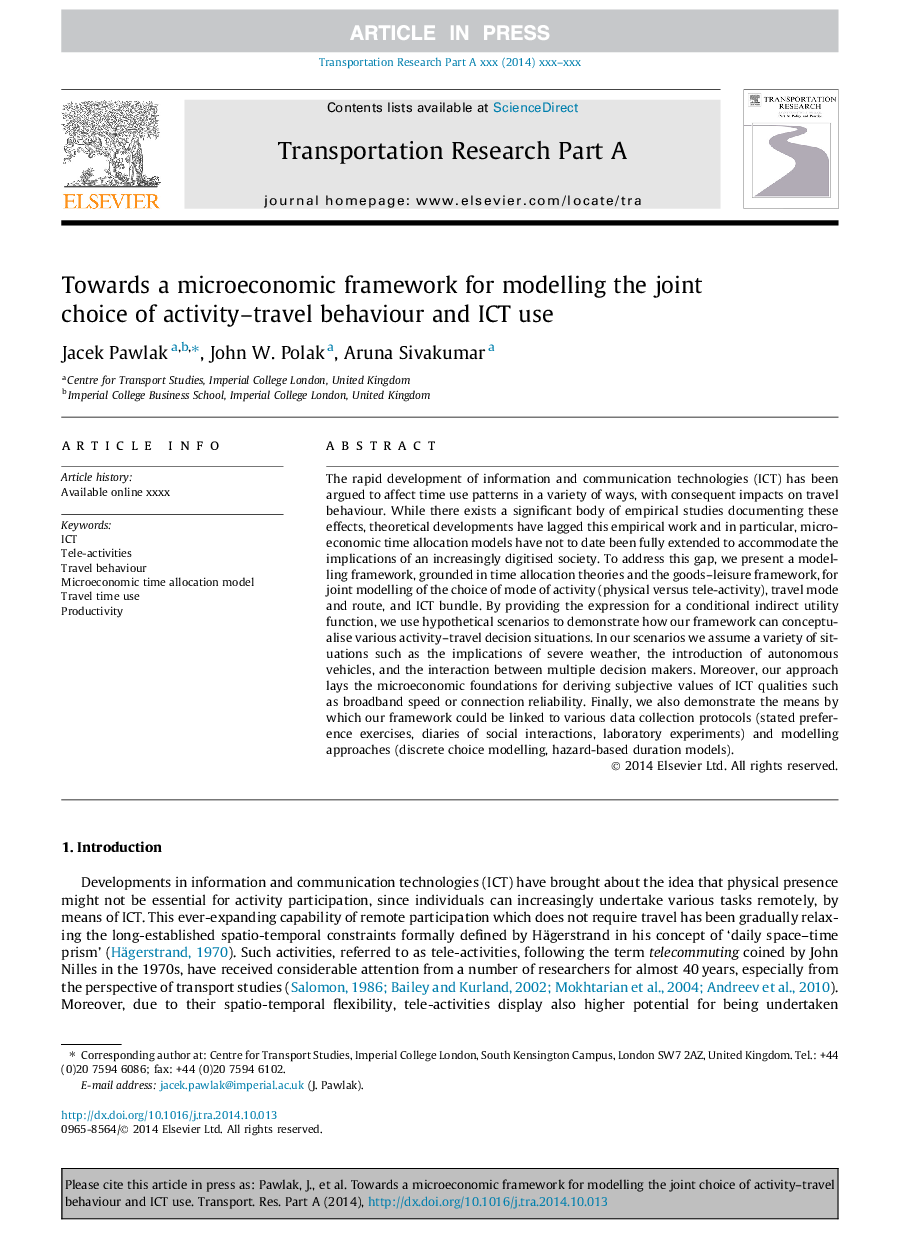| Article ID | Journal | Published Year | Pages | File Type |
|---|---|---|---|---|
| 6781304 | Transportation Research Part A: Policy and Practice | 2015 | 21 Pages |
Abstract
The rapid development of information and communication technologies (ICT) has been argued to affect time use patterns in a variety of ways, with consequent impacts on travel behaviour. While there exists a significant body of empirical studies documenting these effects, theoretical developments have lagged this empirical work and in particular, microeconomic time allocation models have not to date been fully extended to accommodate the implications of an increasingly digitised society. To address this gap, we present a modelling framework, grounded in time allocation theories and the goods-leisure framework, for joint modelling of the choice of mode of activity (physical versus tele-activity), travel mode and route, and ICT bundle. By providing the expression for a conditional indirect utility function, we use hypothetical scenarios to demonstrate how our framework can conceptualise various activity-travel decision situations. In our scenarios we assume a variety of situations such as the implications of severe weather, the introduction of autonomous vehicles, and the interaction between multiple decision makers. Moreover, our approach lays the microeconomic foundations for deriving subjective values of ICT qualities such as broadband speed or connection reliability. Finally, we also demonstrate the means by which our framework could be linked to various data collection protocols (stated preference exercises, diaries of social interactions, laboratory experiments) and modelling approaches (discrete choice modelling, hazard-based duration models).
Related Topics
Physical Sciences and Engineering
Engineering
Civil and Structural Engineering
Authors
Jacek Pawlak, John W. Polak, Aruna Sivakumar,
